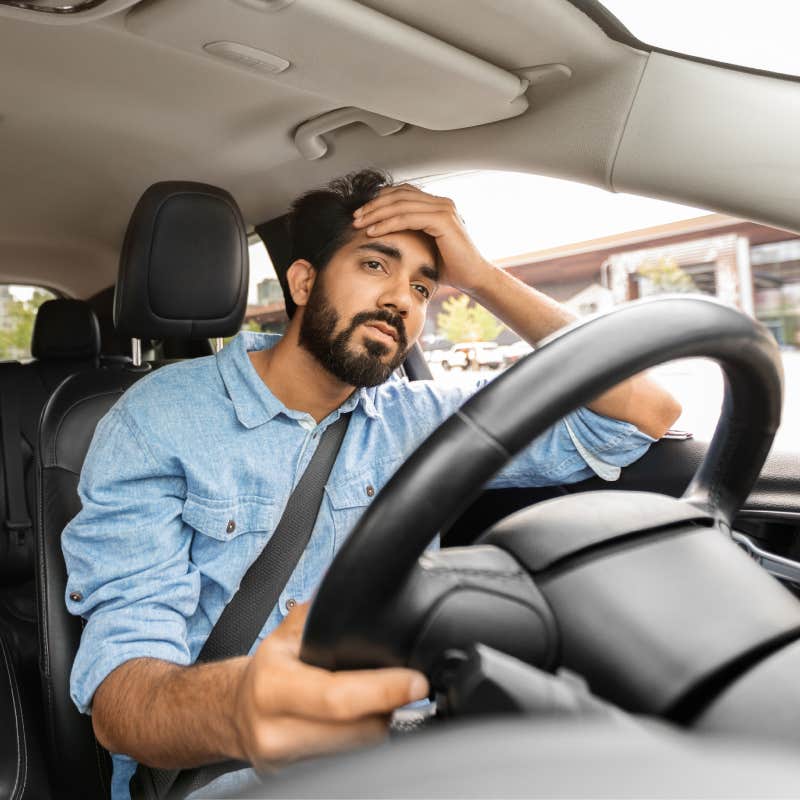A man admitted that he had no desire to pay for the person behind him as he was going through the drive-thru and questioned if that made him a bad person.
Posting to the subreddit r/AITAH, he claimed that he felt guilty for not being generous enough to cover a stranger’s order but also didn’t want to spend unnecessary money when the total ended up being a lot.
A customer felt guilty after refusing to ‘pay it forward’ at Starbucks after hearing the total.
“I’ll start with the fact that I’d prefer to just order and pay for my own coffee and leave. Other than normal pleasantries like the usual ‘How’s your day going? Fine and yours?’ I’d prefer not to converse with the individual in the drive-thru,” he began in his Reddit post.
He explained that it’s happened a few times when he’s getting food or a drink, and the cashier informs him that the person in front of him has already paid for his order. This is known as the online trend “pay it forward,” which started on TikTok and is supposed to be an act of kindness where customers pay for the person behind them in line at a restaurant or drive-thru.
Kindness shouldn’t be forced on others out of obligation.
Pay it forward is meant to be an act of kindness for a stranger, but while he admitted to having no problem paying for someone else’s order, especially while waiting in line to pay for his own, he changed his mind.
As he handed the cashier his credit card, he asked her how much the total was for the person behind him, not thinking that it would be expensive.
However, when she told him it would be $42, he immediately changed his mind, telling the cashier that “the streak ends with him today.”
The idea of “paying it forward” is something nice to do, in theory, but it’s reasonable that not everyone would want to spend close to $50 on someone else’s order. In many cases, they might not be able to, and they should not be obligated to.
Economist and podcast host Russ Roberts told Fast Company, “The whole idea that the person behind me at a Starbucks needs to be comped is a strange idea. Nobody’s in duress here. The real idea of ‘pay it forward’ is, I break down on a snowy night, I lose control of my car and end up in a ditch, four strangers come along and push me out. Then I’m driving along and I see someone else in a ditch, and I pull over and help them. That’s paying it forward. You made a sacrifice. Paying it forward for someone at Starbucks who’s already got $5 in their hand? That strikes me as a bizarre form of ‘pay it forward.’”
His resistance didn’t sit well with the Starbucks cashier.
After declining to pay for the person behind him, the cashier looked at him in ‘total contempt.’
“In this instance [I don’t care] if people think I’m the [expletive] because I’m not going to ever pay $42 for an entire car’s drinks and food because some other nice individual paid for my $4 cup,” he insisted.
Despite the cashier’s look of disapproval, no one should ever feel pressured to spend their money on a stranger, especially if it’s out of their budget.
 Prostock-studio | Shutterstock
Prostock-studio | Shutterstock
It shouldn’t be an expected practice, either, just because someone was kind enough to pay for his drink order. While that’s clearly a very nice thing to do, any act of kindness should be done voluntarily instead of it being an obligation.
Someone paying for his order doesn’t automatically make him responsible for continuing the chain, which was a sentiment that other Redditors agreed with.
Many people unanimously agreed that he wasn’t in the wrong for changing his mind about paying once he heard the total, with one Reddit user writing, “I never participate in pay it forward chains. Defeats the whole purpose [of having] to pay for the next person in line. If the goal is to make a nice gesture, then it shouldn’t come with obligations for me.”
Another Reddit user added, “People who are in line to buy whatever have the money to pay for it. If you want to actually pay it forward, buy a meal for someone who can’t afford it, donate to a food bank or other charitable organization, or [do] something else that can actually make a difference.”
If you want to participate in “pay it forward” chains, there’s nothing wrong with wanting to do so, but if you are doing it, it should come from a genuine place. It shouldn’t be forced or expected because then it takes the fun out of being able to make someone’s day.
And if you find yourself in a drive-thru in the same predicament as this man, don’t feel guilty for letting the chain end with you.
Nia Tipton is a staff writer with a bachelor’s degree in creative writing and journalism who covers news and lifestyle topics that focus on psychology, relationships, and the human experience.

